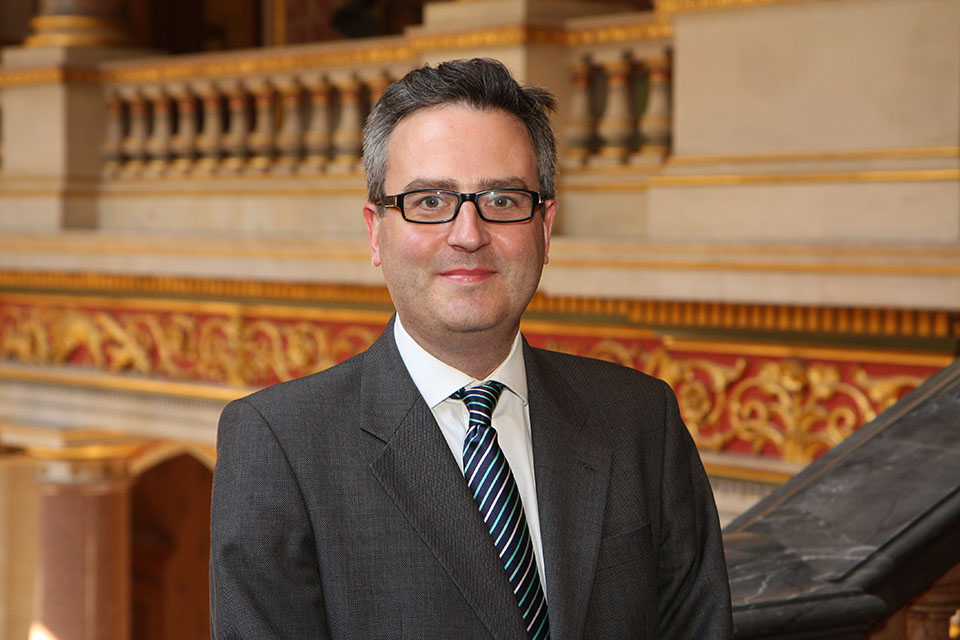Shakespeare Lives - 400th Anniversary
Speech by the British High Commissioner to Kenya at Shakespeare Lives reception to celebrate 400th anniversary of Shakespeare's death

Jinsi gani mbaa mwezi inavyolala unono, juu ya maua haya! Basi na tuketi hapa, na sauti za muziki zitwingie sikioni: Shwari tamu na usiku Vyalaiki nyimbo tamu. Tazama namna mbingu Ilivyopambwa kwa njumu za vipete vya dhahabu.
Ladies and Gentlemen, Welcome to this celebration of Shakespeare. Ben Jonson said that Shakespeare was “not of an age, but for all time”. Four hundred years after his death, our theme tonight is “Shakespeare Lives”. Please join me in thanking all our wonderful artists who will prove that point so well over the course of this evening.
Let me also thank
-
the British Council and the British High Commission teams for organising tonight’s event;
-
our sponsors Barclays Bank, also celebrating this year an important anniversary as they mark 100 years in Kenya;
Shakespeare of course never set foot in Africa. For him and his contemporaries, Africa was a place at the far end of imagination, a space of wonder, mystery and magical beauty.
But Shakespeare’s plays came to Africa even during his lifetime. In 1607, in a bid to stave off idleness, the crew of ‘The Dragon’, a spice vessel, performed Hamlet and Richard II while anchored off Sierra Leone. When Shakespeare came to Africa more fully in the nineteenth century, with colonisation, it was part of what missionaries and colonists called the “civilising mission” – and a misguided attempt to inculcate the idea of the so-called ‘superiority’ of English culture.
But Shakespeare transcended that, and showed he didn’t belong to one nation but to everyone. Mzee Jomo Kenyatta, this country’s founding father, counted his volumes of Shakespeare among his favourite books and often recited from them. Mwalimu Julius Nyerere, father of Tanzanian independence, translated the plays – I quoted from his translation of The Merchant of Venice a couple of minutes ago.
Shakespeare has come to represent not Britain or Britishness but a universal expression of the big human themes and questions, which belongs to each one of us across the boundaries of class, country, gender, race, or religion.
Romeo and Juliet speaks not to the experience of Renaissance Italy or Elizabethan England, but directly to us today – on the stupidity of tribalism; on the power, and sometimes also the suicidal stupidity, of teenage love. This country’s independence, quite understandably, saw a rejection of the so-called Western ‘civilising mission’ and put Kenyan culture, quite rightly, at its heart. But Kenya, like its African neighbours, has re-appropriated Shakespeare in its own way and made him its own. His works were simply too good, too powerful and too universal to belong to any one group or agenda.
Just as Shakespeare in English was being purged from the Kenyan curriculum, Shakespeare in Swahili was being embraced as part of Kenya’s Swahili literature syllabus for upper secondary schools. In 2012, the Theatre Company of Kenya took Wanawake wa Heri wa Winsa – the Merry Wives of Windsor – to England to perform it, in Kiswahili, at the Globe to Globe Shakespeare festival.
Today, Kenyan talents such as Octopizzo, Sauti Sol, Akala and others are showing us how his works continue to resonate and inspire artists around the world. Four hundred years after his death, Shakespeare Lives.
Friends,
Shakespeare was the crowning glory of England’s first Elizabethan age.
But tonight we also celebrate the great figure of the United Kingdom’s second Elizabethan age, as Her Majesty Queen Elizabeth turns 90 today. We will have another chance to mark that, here in this garden, when we celebrate Her Majesty’s official birthday in a couple of months’ time. But Her personal milestone is today – and we celebrate her life, her service, and her strong connection to Kenya, the country where a Princess became a Queen and which I know retains such a special place in Her heart.
So let me invite you all to join me in a double toast:
To the immortal Bard;
And to Her Majesty Queen Elizabeth the Second.